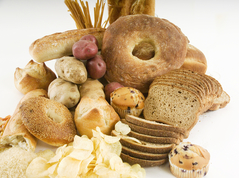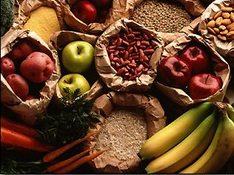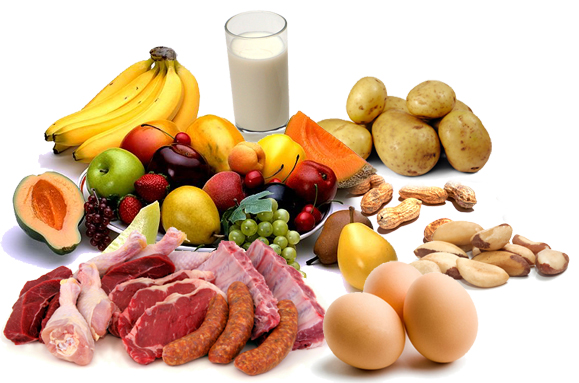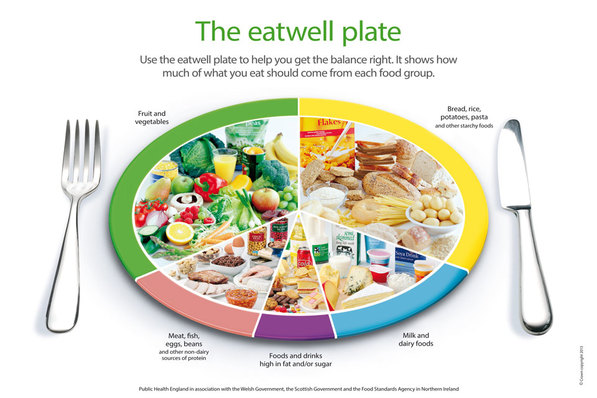|
Great song that! Well, depends on which version you’re familiar with. Anyway I digress! Over the years, as a result of personal experience, reading and speaking to other fitness professionals, I have definitely learnt a lot more about food/nutrition/diet. One thing that has remained constant across my learning experience is the fact that everyone has the same view of how important what we eat is to our wellbeing, especially weight management. I have read, and been told that nutrition is more important than exercise, and a phrase I have seen banded around a lot recently is ‘’You can’t out run a bad diet.’’ This describes the importance of nutrition in a clear and concise manner. No matter how hard, often, and intensely we train, if we’re not eating and drinking the right stuff, we’ll find ourselves going round in a vicious cycle, and finding it very difficult to achieve any semblance of a healthy lifestyle. So with all this in mind, let’s have a closer look at what constitutes a balanced diet. diet1 ˈdʌɪət/ noun 1. 1. The kinds of food that a person, animal, or community habitually eats. You hear this phrase a lot ‘’I’m on a diet’’. Technically, we’re all on a diet. As the above definition states, your diet is what you consume for sustenance, and covers everything from liquids to snacks, to actual meals. So to all intense and purposes, we’re all on a diet, all the time.... Simple! So to improve your well-being, and all round fitness, you need to be on a healthy diet, and this is what I’ll be talking about in the rest of this blog. Healthy Diet?!! Carry out a search online, and you’ll find all kinds of websites telling you what constitutes a healthy diet. Look at the “Eat well plate” for instance, this apparently shows how much of each food group you should consume for a healthy/balanced diet. If you look at the diagram below, it gives the impression that the likes of fizzy drinks, refined carbohydrates, cheese, biscuits and cakes are ok as long as you only consume small amounts of these. This is wrong. If you’re looking to eat healthily, you should be avoiding these. The methods required to achieve weight loss/weight management are not as complicated as many of us believe them to be. Instead of getting bogged down with the amount of calories we consume, we should focus more on the quality of the food. For example, instead of worrying about the amount of poor quality food we consume, stop consuming these full stop! Food groups are a lot simpler to understand, and manage if you try to keep away from calorie counting and stick to eating quality/healthy food. There are three major food groups, namely Fat, Protein and Carbohydrates. These are also known as macronutrients. Macronutrients are types of food required in large amounts to help facilitate a balanced diet. I’m going to keep things simple by focusing on just of the major food groups (or macronutrients) from here on.  Carbohydrates - Refined and Unrefined Carbohydrates have a very important role, as they serve as the main source of energy for day-to-day activities. This process occurs when the digestive system converts the carbs consumed into glucose, or blood sugar. So for carbs to serve the required purpose mentioned above, we need to ensure we are consuming the right kind, therefore unrefined cards, and not the refined kind, which is the type dominant in most diets. Refined Carbohydrates (also referred to as simple carbs) are plant-based foods that have had the whole grain extracted during processing; this in turn removes not only the natural fibre in the grain, but also reduces the nutritional value of these foods. Also, most refined carbs are quite high in sugar, which in turn lead to rapid spikes in blood sugar and insulin levels. They therefore offer very little or no nutritional value to the body. Examples of refined carbohydrates include sweets, breakfast bars, most white carbohydrates or carbs made from white flour like pasta, bread, cakes, biscuits, pastries, pizza, breaded or battered foods, noodles, crisps, chips, fizzy & sports drinks, and most cereals.  Unrefined (or complex) carbohydrates on the other hand have not been processed, and are in their natural state. Fruits and vegetables in their uncooked natural form, as well as whole grains in all come into this category. So, foods such as sweet potato, brown and wild rice, yams, quinoa, bulger wheat, spelt, barley, muesli, spinach, lentils. Most beans, pulses, vegetables and nuts (not the dry roasted, honey coated ready salted kinds!!) all count towards our carbohydrates intake. Complex carbs also retain high fibre content, as they have not been processed like the refined variety has. So start on your new “diet” by substituting the foods in the refined list with foods in the unrefined list, and over a few weeks, you should start seeing a difference!
I will cover further aspects of nutrition (and the other food groups) in upcoming blogs, so please stay tuned for more on this, and other health, fitness and exercise topics in the future.
0 Comments
Leave a Reply. |
AuthorHi, Lou here, I'll be sharing my thoughts and insights via my blog regularly, so please stay tuned! CategoriesArchives
January 2020
|
Quick Links |
Personal Training in SurreyGravis Fitness is one of the leading personal training & transformation programmes in the Surrey area
Terms & Conditions |
Gravis FitnessTel:
+447495385097 |



 RSS Feed
RSS Feed


